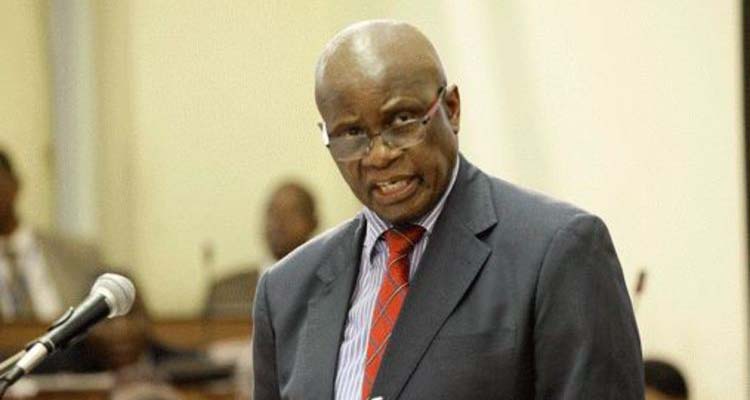
The ManicaPost

Kudzanai Gerede Business Correspondent
Last week, Finance and Economic Planning Minister Patrick Chinamasa presented the 2018 National Budget, which has been widely applauded by analysts for being economical at a time excessive spending on recurring expenditure was straining public finances for capital projects.
The Budget was mainly premised around restraining the fiscal deficit whose ripple effects have amplified headwinds for the economy, particularly the financial sector now awash with Treasury Bills from excessive Government borrowing to sustain its massive expenditure. This, according to analysts, has weakened local banks’ liquidity.
Buoyed by the prudent economic roadmap from the latest budgetary statement, the African Export-Import Bank (Afreximbank) on Tuesday this week extended a US$ 1,5 billion facility to Zimbabwe to be injected into key productive sectors to spur the economy.
The facility was described as a stabilisation package that will go towards the revival of the productive sector to stimulate more exports. From the proposed US$5,071 billion budget for 2018, Minister Chinamasa has proposed sound fiscal anchors that will trim the fiscal deficit to at least US$672 million against projected expenditure of US$5,743 billion.
The fiscal deficit for 2017 has since reached US$2,9 billion from the initially projected US$ 1,4 billion owing to non-compliance to budgetary guidelines, which resulted in increased expenditure to US$5,6 billion from the budgeted US$4,1 billion in the previous budget.
Assurance has already been made to streamline the wage bill to sustainable levels of US$3,3 billion, thus 57 percent of total revenue down from 73 percent in 2017. This resonates with calls by multilateral institutions who have been calling for the wage bill to revenue threshold of between 35-40 percent.
Experts concur with the Finance Minister, that Treasury is likely to see employment costs in the Budget recede to below 60 percent of total revenue by 2020, on condition that the prescribed austerity measures are religiously adhered to. These include freezing of posts in the civil service, slashing of flamboyant allowances, staff rationalisation targeting retirement age of 65 years, voluntary retirement scheme and scrapping of duplication of roles within public sector.
“The Budget marked an excellent paradigm shift in terms of controlling Government expenditure and redirecting resources to critical sectors and indeed improving the business environment and the investment appeal,” Buy Zimbabwe, a local content lobby group, said in a statement.
Observers have further applauded Government’s readjustment to the Indigenisation and Economic Empowerment Act to nullify the 51-49 percent threshold that was in favour of locals. The policy was adopted by former president Robert Mugabe in March 2008 much to the resentment of foreign investors. The threshold will, however, continue to apply to diamond and platinum sectors only. This has been widely seen as a major turning point for the new economic dispensation.
“The Indigenisation Policy was arguably the sole hindrance to investment into the country especially under the 51-49 percent threshold because investors could not control their investment and there were security concerns. So this amendment to the policy will go a long way in bringing investor confidence back,” economic analyst Percy Gwanyanya told Post Business while underlining the need for adherence to the prescribed measures set out by the Finance Minister.
“We have had good budgets in the past but lacked compliance and political will to adhere to them but now with the President having already expressed political will to forge the country forward with zero tolerance to corruption at the forefront, we are optimistic of the future,” he added.
He further expressed satisfaction with Government commitment to compensation of erstwhile white farmers who lost land during the land reform programme as sending a positive tone towards guarantee and protection of investment in the country going forward.
“Guarantee of investment protection and policy consistence will be crucial in changing investor mindset about the country. With commitment to compensate white farmers coming from the high positions of Government, this will definitely change international perception about the economy with regards to investment confidence,” said Gwanyanya.



